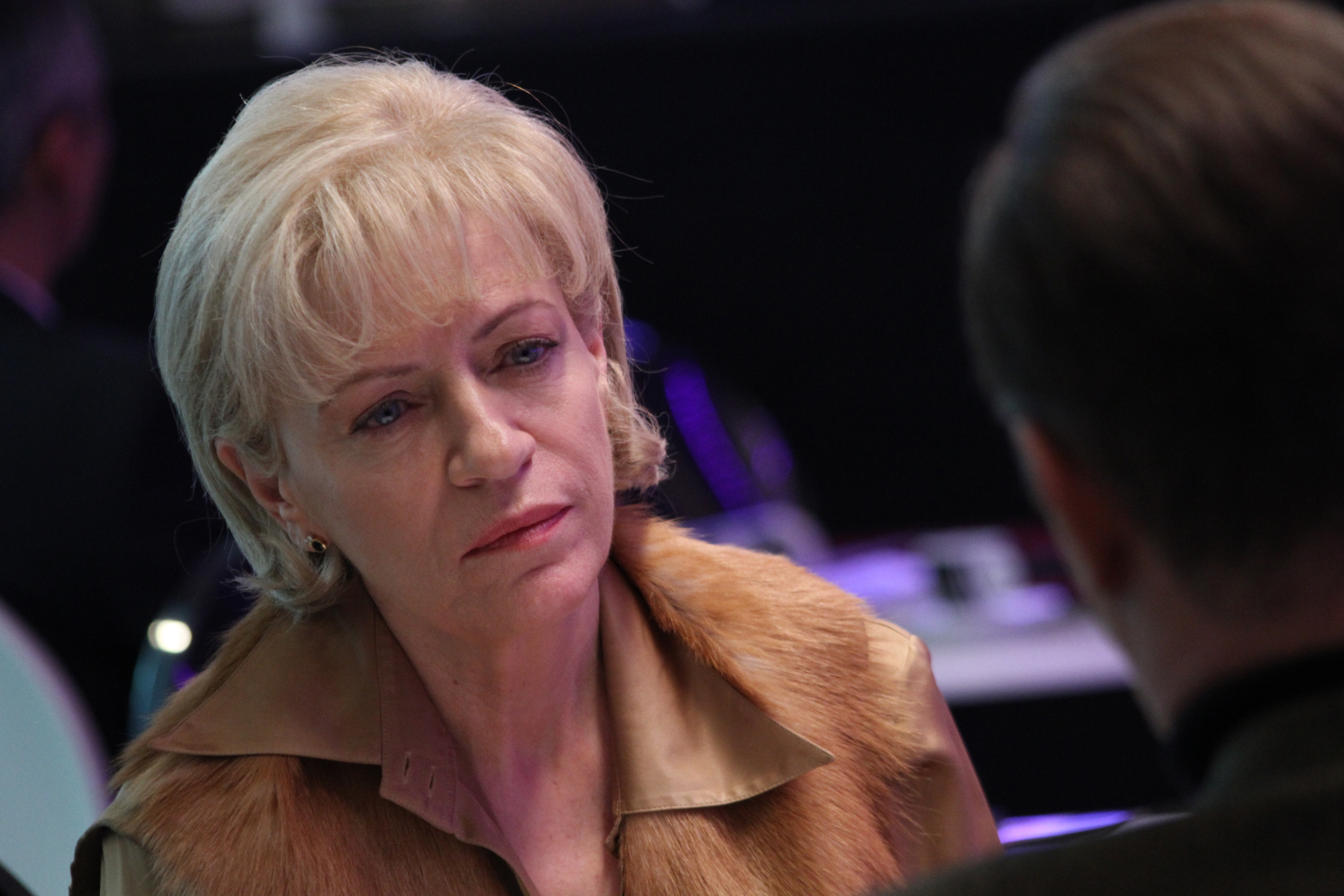Child’s Pose
Opens Fri., March 7 at Seven Gables. Not rated. 112 minutes.
Something happened on a dark road outside Bucharest, and a boy is dead. We will not learn the details, because that’s not the point of Child’s Pose. The point is watching how character, class, and family dynamics twist the aftermath of a tragic event. There are no scenes of screeching wheels, because this Romanian movie is a series of scenes of people talking in rooms—a tough sell for a publicist, but a compelling experience when the stakes are high and the portrait of human nature is clear-eyed. As it is here.
The dead adolescent, a kid from a peasant family, was running across the road when a car driven by Barbu (Bogdan Dumitrache) hit him. Barbu was trying to pass another car and probably speeding. Under ordinary circumstances he’d be a sure bet for prison, but ordinary circumstances do not include his mother Cornelia (Luminita Gheorghiu), an elegant but ferocious upper-class woman determined to control this situation—just as she’s controlled every other aspect of her grown son’s life. In a simpler film, Cornelia would be a wicked witch strangling Barbu with apron strings (let’s cast Jane Fonda there) or a mama bear fighting for her child against all odds (Sally Field). In Child’s Pose, she is both.
Cornelia sashays into the police station the night of the accident, still wearing fur from an evening out, and promptly takes over the investigation. She reeks of clueless entitlement (her conversation with her maid is a small gem of generosity laced with manipulation), yet you’d want her on your side in a street fight. For his part, Barbu is anything but sympathetic, a cowardly sluggard who might be better off going to the clink. Gheorgiu’s performance (she’s been in a bunch of the best movies of the ongoing Romanian New Wave, including The Death of Mr. Lazarescu and 4 Months, 3 Weeks and 2 Days) captures Cornelia with brittle, I’m-still-standing exactitude.
Child’s Post is directed by Calin Peter Netzer, who uses the house style of recent Romanian film: long scenes rendered in something close to real time and deadpan treatment of bureaucracy and social conventions. As we reach the long final sequence, the ending is not at all predictable. After all the talk, it will come down to a conversation we don’t hear—but witness nonetheless—to suggest a resolution. That’s precisely how to do it.
film@seattleweekly.com







